Friday, June 13, 2025 – Reading the Subway Sun was unavoidable while on the subway (before cell phones)


When The Subway Sun
Ruled NYC’s Underground
Friday, June 13, 2025
HYPERALLERGIC
Issue #1470
With its signature two-toned design and illustrations, the mock newspaper encouraged polite passenger etiquette and promoted local attractions.
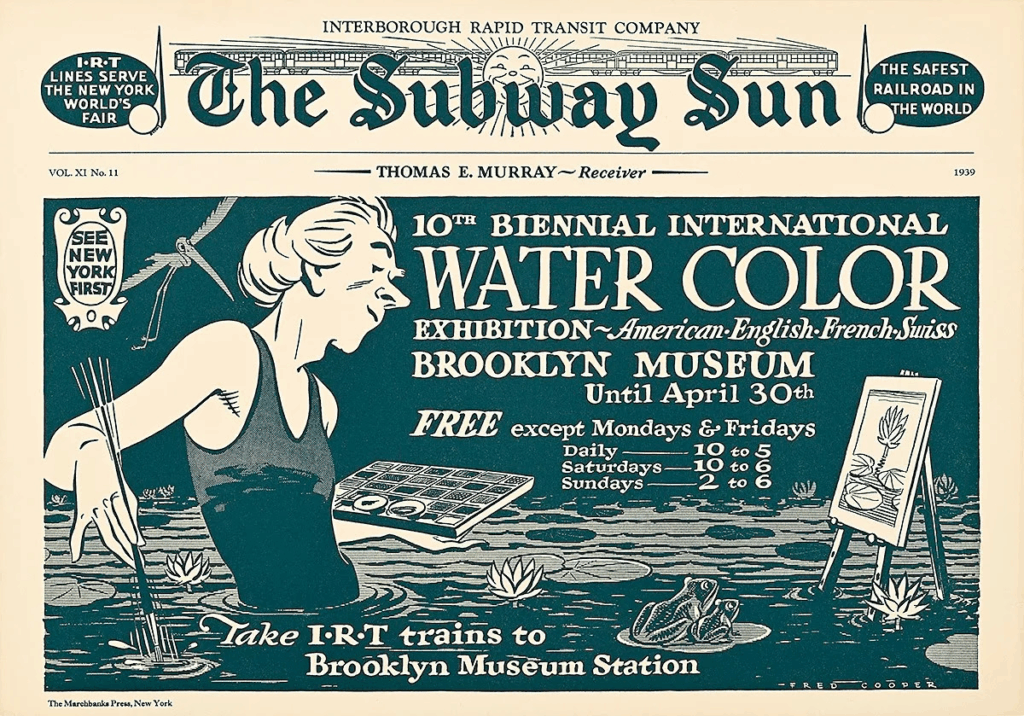
Decades before the New York City subway cars were lined with advertisements for niche dating apps, personal injury lawyers, prescription weight loss medicines, and alternative internet browsers, the interiors of many of the city’s trains were adorned with editions of the two-toned mock newspaper known as The Subway Sun.
Primarily produced between 1936 and 1965 under the artistic direction of late cartoonists Fred Cooper and Amelia Opdyke Jones, the imitation periodical campaign by the Interborough Rapid Transit Company (IRT) fulfilled a variety of purposes in the subway system for over five decades. It encouraged polite passenger etiquette, but also promoted local attractions as a way to entice New Yorkers to use public transit — from the Metropolitan Museum of Art to the Brooklyn Botanic Garden.
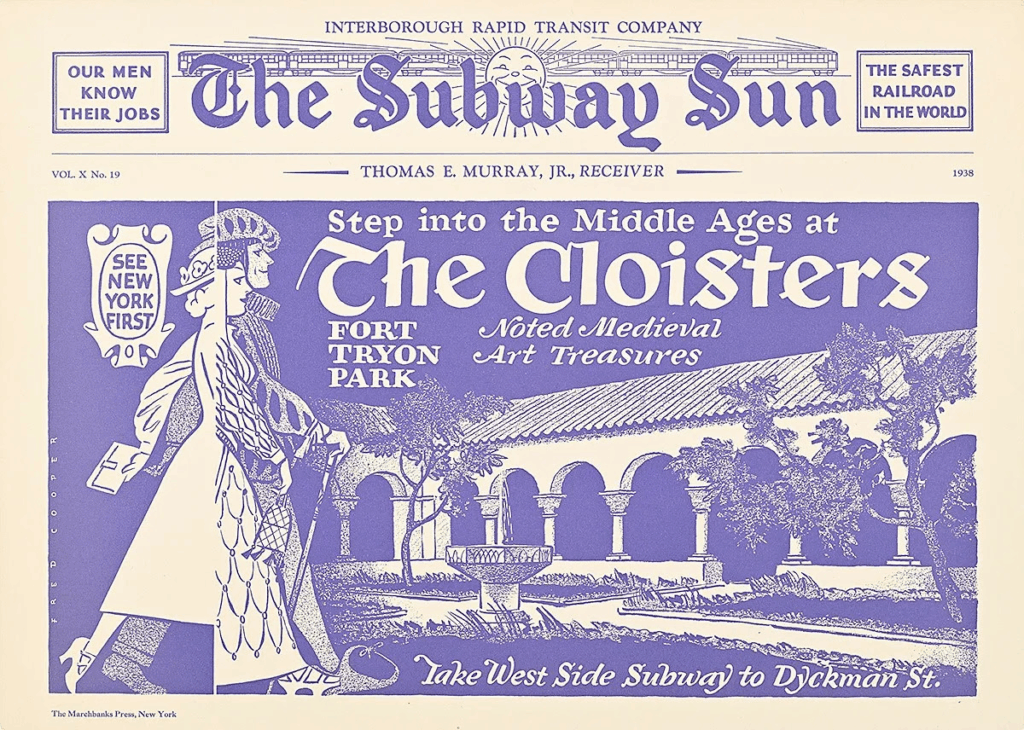
Now, Manhattan’s Poster House is shining a light on the series for the first time in the new exhibition From the Bronx to the Battery: The Subway Sun, on view in the museum’s entry foyer through November 2. Curated by Es-pranza Humphrey, the show features 17 original in-car posters from the museum’s permanent collection, produced between 1937 and 1939. They showcase Cooper’s unique type design and signature illustration style that would eventually became the series’s defining aesthetic.
When The Subway Sun initially appeared in 1918 as a weekly promotional campaign for the IRT, the posters mainly focused on service announcements, operating expenses, and rules of conduct. They imitated the appearance of genuine newspapers, heavily laden with text and scarcely featuring illustrations. This design, however, shifted within a few years after the campaign began to incorporate advertisements for local sights and activities as a means to increase ridership.
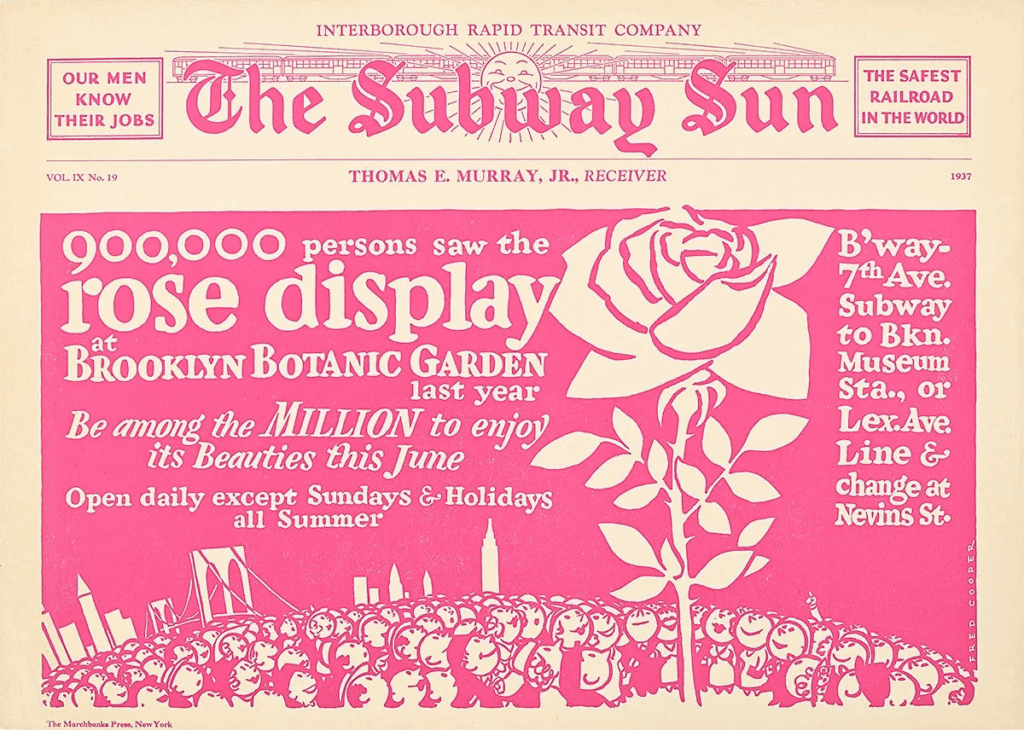
Cooper was an established graphic artist and political cartoonist when his designs for The Subway Sun first launched in the 1930s. His illustrations, which consisted of balloon-headed caricatures and one-of-a-kind lettering, often plugged public sights and events by blending helpful information with amusing characters. “His design adds a level of humor and familiarity, as these are posters that people would interact with during their rides on the IRT,” Humphrey, the museum’s assistant curator of collections, told Hyperallergic.
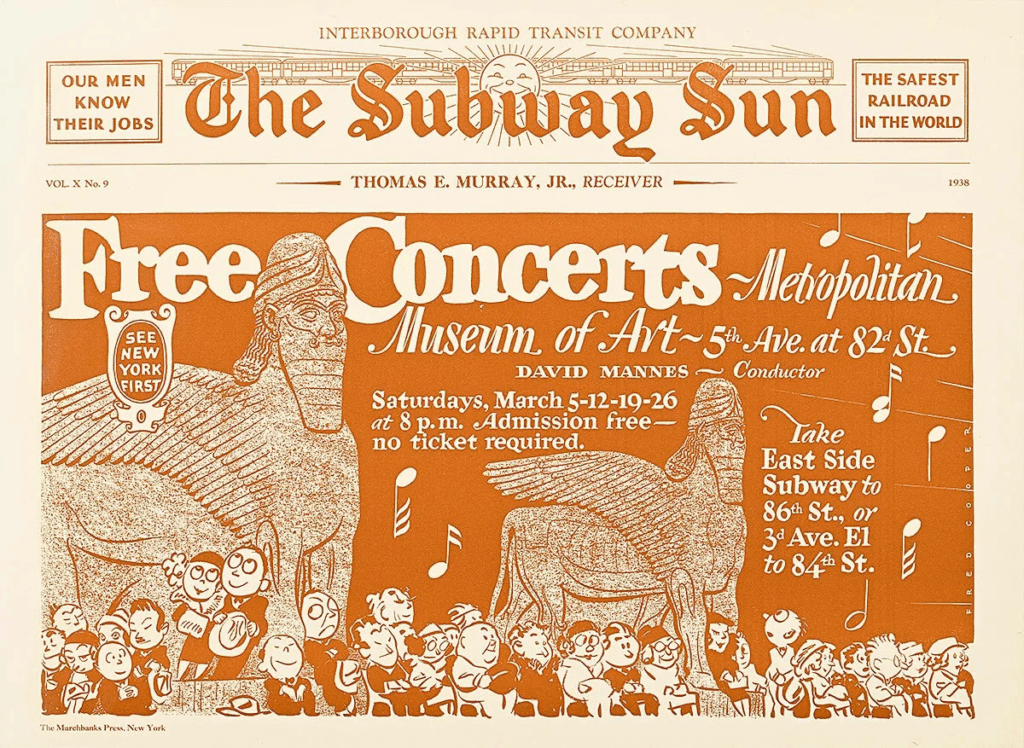
In a half-page ad for free weekend concerts at The Met, audience members are depicted together with massive Neo-Assyrian antiquities. Another bright-red poster promoting a rock garden display at the New York Botanical Garden in the Bronx revisits people of the Stone Age, depicting a child complaining to their mother about a dinosaur calf that is seen ravaging a bed of campanula cochlearifolia (fairy thimble) in the background. A 1939 ad promoting the 10th Biennial International Water Color Exhibition at the Brooklyn Museum gives a literal interpretation of the arts medium through an illustration of artist at an easel while half submerged in a lily pond.
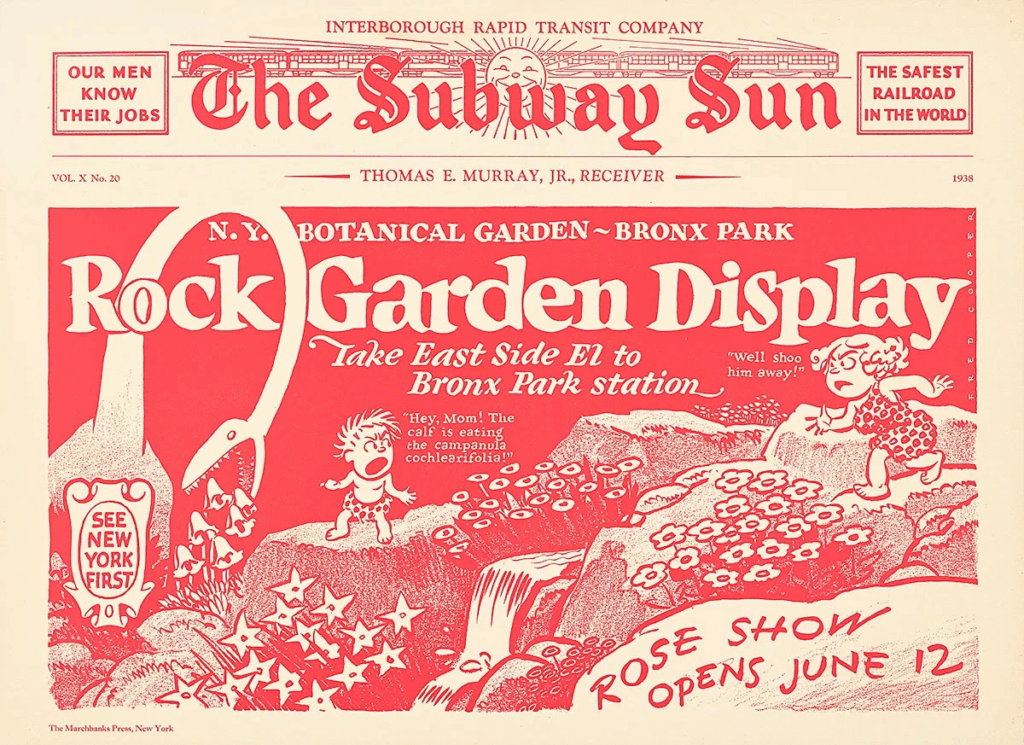
In the 1940s, Cooper was succeeded by Jones, who also gave the publication a distinct voice. Many of her ads reminded riders how to be courteous to their fellow subway passengers by advising against inconsiderate behaviors like blocking train doors and manspreading — issues that continue to plague the transit system today.
VACATION TIME
After the last few months and a hip replacement, it is time for a week off the island. I will return soon and looking forward to seeing you.
Judith Berdy
CREDITS
HYPERALLERGIC
Judith Berdy
All image are copyrighted (c) Roosevelt Island Historical Society unless otherwise indicated
THIS PUBLICATION FUNDED BY DISCRETIONARY FUNDS FROM CITY COUNCIL MEMBER JULIE MENIN & ROOSEVELT ISLAND OPERATING CORPORATION PUBLIC PURPOSE FUNDS.


Copyright © 2025 Roosevelt Island Historical Society, All rights reserved.Our mailing address is:
rooseveltislandhistory@gmail.com

Leave a comment